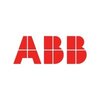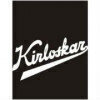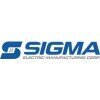Filter interviews by
RSB Transmissions Interview Questions and Answers
45 Interview questions
Influencing safety behavior involves education, communication, and creating a culture of accountability and engagement.
Implement regular safety training sessions to reinforce the importance of safety protocols.
Use positive reinforcement by recognizing and rewarding safe behavior among employees.
Encourage open communication about safety concerns, allowing employees to voice their thoughts without fear.
Lead by examp...
Yes, I know how to set the current voltage on a welding machine for optimal performance.
Identify the type of welding process (e.g., MIG, TIG, Stick) to determine voltage settings.
Refer to the welding machine's manual for recommended voltage settings based on material thickness.
Adjust the voltage knob or digital display on the machine to the desired level, ensuring it matches the electrode type.
For example, MIG wel...
5S is a workplace organization method that improves efficiency and safety through five steps: Sort, Set in order, Shine, Standardize, Sustain.
Sort (Seiri): Remove unnecessary items from the workspace. Example: Discarding old tools that are no longer used.
Set in Order (Seiton): Organize and arrange tools and materials for easy access. Example: Labeling storage areas for specific tools.
Shine (Seiso): Clean the works...
Motors convert electrical energy into mechanical energy, while generators convert mechanical energy into electrical energy.
Energy Conversion: Motors transform electrical energy into motion, while generators do the opposite by converting motion into electrical energy.
Applications: Motors are used in appliances like fans and electric vehicles, whereas generators are found in power plants and backup systems.
Types: Co...
Machines can be classified into various types based on their operation, design, and application in different fields.
AC Motors: Used in household appliances and industrial applications for converting electrical energy into mechanical energy.
DC Motors: Commonly found in toys and small devices, these motors operate on direct current and are known for their speed control.
Transformers: Electrical devices that transfer ...
A machine is a device that uses energy to perform work, often consisting of interconnected parts that manipulate forces.
Mechanical Machines: Devices like levers and pulleys that amplify force or change direction, e.g., a seesaw.
Electrical Machines: Devices that convert electrical energy into mechanical energy, such as motors and generators.
Thermal Machines: Systems that convert heat energy into work, like steam en...
The break-even point is where total revenue equals total costs, indicating no profit or loss in manufacturing.
The break-even point (BEP) helps determine the minimum sales needed to avoid losses.
It is calculated using the formula: BEP = Fixed Costs / (Selling Price per Unit - Variable Cost per Unit).
For example, if fixed costs are $100,000, selling price per unit is $50, and variable cost per unit is $30, BEP = 100...
Value Stream Mapping (VSM) visualizes processes to identify waste and improve efficiency in organizations.
Identifies value-adding and non-value-adding activities, helping to streamline processes.
Facilitates communication among team members by providing a clear visual representation of workflows.
Enables organizations to pinpoint bottlenecks, such as delays in production or excessive inventory.
Example: A manufacturi...
I prioritize maintenance activities to minimize downtime during peak production, ensuring efficiency and reliability.
Conduct a thorough analysis of production schedules to identify peak days and adjust maintenance plans accordingly.
Implement PM activities during off-peak hours or scheduled downtimes to avoid disruptions.
Utilize TBM to perform comprehensive checks on critical machinery before peak periods, ensuring...
Measurement System Analysis (MSA) evaluates the accuracy and reliability of measurement systems to ensure quality control.
MSA identifies sources of measurement variation, ensuring data accuracy.
It is crucial for quality assurance in manufacturing and service industries.
Example: In a manufacturing plant, MSA can assess the precision of a caliper used to measure part dimensions.
MSA involves techniques like Gage R&am...
RSB Transmissions Interview Experiences
29 interviews found
I appeared for an interview in Oct 2024, where I was asked the following questions.
- Q1. What strategic planning and decisions will you implement to achieve sustainable and profitable business growth for your organization?
- Ans.
Implementing strategic planning for sustainable growth involves innovation, efficiency, and market responsiveness.
Conduct a thorough market analysis to identify growth opportunities and emerging trends, such as telehealth in the medical field.
Invest in technology and automation to improve operational efficiency, reducing costs while enhancing service delivery.
Develop a robust talent management strategy to attract, reta...
- Q2. What is the average material cost contribution in general for any manufacturing industry, and what major steps can be taken to reduce these costs?
- Ans.
Material costs typically account for 50-70% of total manufacturing costs; reducing them is crucial for profitability.
1. Optimize Supply Chain: Negotiate better terms with suppliers or consolidate purchases to achieve bulk discounts.
2. Implement Lean Manufacturing: Adopt lean principles to minimize waste and improve efficiency, reducing material usage.
3. Invest in Technology: Use automation and advanced manufacturing te...
- Q3. What is your understanding of the break-even point in a manufacturing industry?
- Ans.
The break-even point is where total revenue equals total costs, indicating no profit or loss in manufacturing.
The break-even point (BEP) helps determine the minimum sales needed to avoid losses.
It is calculated using the formula: BEP = Fixed Costs / (Selling Price per Unit - Variable Cost per Unit).
For example, if fixed costs are $100,000, selling price per unit is $50, and variable cost per unit is $30, BEP = 100,000 ...
- Q4. What is Value Stream Mapping (VSM), and how does it assist organizations in becoming more productive and effectively utilizing resources?
- Ans.
Value Stream Mapping (VSM) visualizes processes to identify waste and improve efficiency in organizations.
Identifies value-adding and non-value-adding activities, helping to streamline processes.
Facilitates communication among team members by providing a clear visual representation of workflows.
Enables organizations to pinpoint bottlenecks, such as delays in production or excessive inventory.
Example: A manufacturing co...
- Q5. What are your most significant achievements?
- Ans.
Successfully led operational improvements, enhancing efficiency and reducing costs across multiple projects.
Implemented a new inventory management system that reduced stock discrepancies by 30%.
Led a cross-functional team to streamline the supply chain process, resulting in a 15% reduction in delivery times.
Developed a training program for staff that improved productivity by 20% and reduced onboarding time by 25%.
Spear...
- Q6. What is the current headcount of your team, and what strategies have you implemented to keep them engaged and motivated?
- Q7. Are you familiar with CNC, programming, and microprogramming? How do you conduct geometric tests on machines?
- Ans.
I have extensive experience with CNC programming and conduct geometric tests using precise measurement techniques.
CNC (Computer Numerical Control) programming involves creating code that directs machine tools to perform specific tasks.
Microprogramming is a low-level programming technique used to control the internal operations of a CPU or other devices.
Geometric tests on machines can include checking for straightness, ...
- Q8. What types of cutting tools do you use, and who are the leading providers of cutting tools?
- Ans.
Cutting tools vary by application; leading providers include companies like Sandvik, Kennametal, and Mitsubishi Materials.
Types of cutting tools include drills, end mills, lathes, and saw blades.
Drills are used for creating holes; examples include twist drills and spade drills.
End mills are used for milling operations; they come in various shapes like flat, ball, and corner radius.
Lathes are used for turning operations...
- Q9. Which tool is most suitable for milling and boring operations?
- Ans.
End mills and boring bars are ideal tools for milling and boring operations, offering precision and versatility.
End mills are used for milling operations, available in various shapes like flat, ball, and corner radius.
Boring bars are specifically designed for boring operations, providing high accuracy in enlarging holes.
Face mills can also be used for milling, especially for creating flat surfaces.
Tapered end mills are...
- Q10. What is Statistical Process Control (SPC), and can you provide a detailed explanation?
- Ans.
Statistical Process Control (SPC) is a method of quality control using statistical methods to monitor and control processes.
SPC uses control charts to track process performance over time.
Example: A manufacturing line uses control charts to monitor the diameter of produced parts.
It helps identify variations in processes, distinguishing between common and special causes.
Example: A sudden spike in defects may indicate a s...
- Q11. What is Measurement System Analysis (MSA), why is it conducted, and what is the process involved in performing MSA?
- Ans.
Measurement System Analysis (MSA) evaluates the accuracy and reliability of measurement systems to ensure quality control.
MSA identifies sources of measurement variation, ensuring data accuracy.
It is crucial for quality assurance in manufacturing and service industries.
Example: In a manufacturing plant, MSA can assess the precision of a caliper used to measure part dimensions.
MSA involves techniques like Gage R&R (...
- Q12. What is the difference between Cp, CpK, and Pp, PpK?
- Ans.
Cp, CpK, Pp, and PpK are metrics used to measure process capability and performance in manufacturing and quality control.
Cp (Process Capability) measures the potential capability of a process assuming it is centered within the specification limits.
CpK (Process Capability Index) assesses how centered the process is within the specification limits, accounting for process mean.
Pp (Process Performance) evaluates the actual...
- Q13. How do you analyze your team's competency levels, identify gaps, and what measures have you taken to bridge those gaps?
- Q14. What are Quality Control Circles (QCC), Kaizen, and Poka-Yoke?
- Ans.
QCC, Kaizen, and Poka-Yoke are methodologies aimed at improving quality and efficiency in operations.
Quality Control Circles (QCC): Small groups of employees who meet regularly to discuss and solve work-related problems.
Example of QCC: A team of factory workers identifying ways to reduce defects in a production line.
Kaizen: A continuous improvement philosophy that encourages small, incremental changes to enhance produc...
- Q15. What is the importance of safety within your establishment, and how are you ensuring and managing the creation of a self-sustaining work environment?
- Q16. Have you ever worked with labor unions, and what issues have you faced from the labor force, as well as how did you handle those situations?
- Q17. How did you handle customer issues, and what actions or processes did you implement to resolve them?
- Ans.
I proactively addressed customer issues by implementing structured processes and fostering open communication for effective resolutions.
Established a dedicated customer support team to handle inquiries and complaints promptly.
Implemented a ticketing system to track issues, ensuring no customer concern was overlooked.
Conducted regular training sessions for staff on effective communication and problem-solving techniques.
...
- Q18. What are the methods for evaluating suppliers, how do you manage relationships with suppliers, what measures do you implement to enhance the supplier process, and how do suppliers benefit from these impro...
- Ans.
Effective supplier evaluation and relationship management enhance operational efficiency and mutual benefits.
1. Supplier Evaluation Methods: Use criteria like quality, delivery performance, and cost-effectiveness. For example, a scorecard system can quantify these metrics.
2. Relationship Management: Foster open communication through regular meetings and feedback sessions. This builds trust and transparency.
3. Performan...
- Q19. Have you ever encountered a material supply shortage issue?
- Ans.
Yes, I faced a material supply shortage that impacted production timelines and required strategic sourcing solutions.
Identified a critical shortage of raw materials due to supplier bankruptcy, which delayed production schedules.
Implemented a dual-sourcing strategy to mitigate risks, ensuring continuity of supply from alternative vendors.
Collaborated with the procurement team to negotiate expedited shipping for critical...
- Q20. What types of inventory do you prefer to maintain, what processes do you follow to manage and reduce inventory levels, and how have you categorized the inventory?
- Ans.
Effective inventory management involves categorization, processes to reduce levels, and maintaining optimal types of inventory.
ABC Analysis: Categorizing inventory into A (high value), B (moderate value), and C (low value) helps prioritize management efforts.
Just-In-Time (JIT): Implementing JIT inventory reduces holding costs by receiving goods only as they are needed in the production process.
Regular Audits: Conductin...
- Q21. How do you plan the Planned Maintenance (PM), Total Body Maintenance (TBM), and Condition-Based Maintenance (CBM) activities for your machine during peak production days?
- Ans.
I prioritize maintenance activities to minimize downtime during peak production, ensuring efficiency and reliability.
Conduct a thorough analysis of production schedules to identify peak days and adjust maintenance plans accordingly.
Implement PM activities during off-peak hours or scheduled downtimes to avoid disruptions.
Utilize TBM to perform comprehensive checks on critical machinery before peak periods, ensuring all ...
- Q22. What are your strengths, why do you want to join our organization, and what will be your focus areas after joining?
- Q23. What questions would you like to ask?
Interview Preparation Tips
- Q1. Are you comfortable in all the shifts
- Ans.
Yes, I am comfortable working all shifts and understand the importance of flexibility in ensuring safety at all times.
I have experience working rotating shifts in previous roles, which helped me adapt to different work environments.
Being available for night shifts allows me to monitor safety protocols during off-peak hours when fewer staff are present.
I understand that safety issues can arise at any time, and being fle...
- Q2. How can change a person's behaviour towards safety
- Ans.
Influencing safety behavior involves education, communication, and creating a culture of accountability and engagement.
Implement regular safety training sessions to reinforce the importance of safety protocols.
Use positive reinforcement by recognizing and rewarding safe behavior among employees.
Encourage open communication about safety concerns, allowing employees to voice their thoughts without fear.
Lead by example; m...
- Q1. What do you mean internal audit
- Ans.
Internal audit is an independent evaluation of an organization's operations, risk management, and governance processes.
Assesses the effectiveness of internal controls, e.g., reviewing financial reporting processes.
Identifies areas for operational improvement, such as streamlining procurement procedures.
Evaluates compliance with laws and regulations, like ensuring adherence to data protection laws.
Provides recommendatio...
- Q2. Who can do internal audit
- Ans.
Internal audits can be conducted by qualified professionals, including internal auditors, external auditors, and specialized consultants.
Internal auditors: Employees within the organization who assess internal controls and compliance.
External auditors: Independent firms hired to evaluate financial statements and internal processes.
Consultants: Specialists brought in for specific audits, such as IT security or regulator...
(2 Questions)
- Q1. Tell me about your self
- Q2. Why you want to join
(1 Question)
- Q1. Whats is a gst
- Ans.
GST stands for Goods and Services Tax, a value-added tax levied on most goods and services sold for domestic consumption.
GST is a consumption tax that is ultimately borne by the end consumer.
It is a multi-stage tax with input tax credit mechanisms to avoid cascading of taxes.
GST has different rates for different goods and services, such as 5%, 12%, 18%, and 28% in India.
It simplifies the tax structure by replacing mult...

(2 Questions)
- Q1. What is Transmission
- Ans.
Transmission is a mechanical device that transfers power from the engine to the wheels, allowing the vehicle to change speed and direction.
Transmission is an essential component in vehicles, enabling the engine's power to be transmitted to the wheels.
It allows the vehicle to change gears and adjust speed, providing torque and rotational force to the wheels.
There are different types of transmissions, such as manual, aut...
- Q2. How many types of gear
- Ans.
There are several types of gears used in various applications.
Spur gears: most common type with straight teeth
Helical gears: teeth are cut at an angle for smoother operation
Bevel gears: used to transmit power between intersecting shafts
Worm gears: used for high reduction ratios and self-locking
Planetary gears: provide high torque and compact size
Rack and pinion gears: convert rotational motion into linear motion
I applied via Walk-in and was interviewed in Aug 2023. There were 3 interview rounds.

Discuss about group large or small and about job security
(1 Question)
- Q1. First round company profile
I applied via Approached by Company and was interviewed in Jul 2023. There were 3 interview rounds.

(1 Question)
- Q1. Details about your current work.
(1 Question)
- Q1. General details including Salary.
I applied via Naukri.com and was interviewed in Jul 2023. There were 3 interview rounds.

Consimenent,e-way bill, Booking
MSDS report and tooling audit
Interview Preparation Tips
- Tools menu
- MSDS
- Consignment
- E-way bill
- Issue Booking
- Op Ganrate
I appeared for an interview before Jan 2024.
(3 Questions)
- Q1. What does NPD stand for and what does it mean?
- Ans.
NPD stands for New Product Development, which refers to the process of bringing a new product from concept to market.
NPD involves idea generation, product design, prototyping, testing, and commercialization.
It aims to meet customer needs, stay ahead of competitors, and drive business growth.
Examples include Apple launching a new iPhone model or Nike introducing a new line of athletic shoes.
- Q2. What is the mechanical process?
- Ans.
The mechanical process involves the study of motion, forces, and energy to design, analyze, and manufacture mechanical systems.
Involves the study of motion, forces, and energy
Used to design, analyze, and manufacture mechanical systems
Includes concepts like mechanics, thermodynamics, and materials science
- Q3. Tell me about 2 stroke and 4stroke
- Ans.
2 stroke and 4 stroke engines are types of internal combustion engines with different cycles of operation.
2 stroke engines complete the power cycle in 2 strokes of the piston (up and down), while 4 stroke engines complete it in 4 strokes (intake, compression, power, exhaust).
2 stroke engines have simpler design and are lighter, but less fuel efficient and produce more emissions compared to 4 stroke engines.
Examples of ...
Top trending discussions






RSB Transmissions Interview FAQs
Some of the top questions asked at the RSB Transmissions interview -
The duration of RSB Transmissions interview process can vary, but typically it takes about 2-4 weeks to complete.
Tell us how to improve this page.
RSB Transmissions Interviews By Designations
- RSB Transmissions Quality Engineer Interview Questions
- RSB Transmissions Electrical Engineer Interview Questions
- RSB Transmissions Production Engineer Interview Questions
- RSB Transmissions Assistant Engineer Interview Questions
- RSB Transmissions Engineer Interview Questions
- RSB Transmissions Graduate Apprentice Trainee Interview Questions
- RSB Transmissions Design Engineer Interview Questions
- RSB Transmissions Internal Auditor Interview Questions
- Show more
Interview Questions for Popular Designations
Overall Interview Experience Rating
based on 34 interview experiences
Difficulty level
Duration
Interview Questions from Similar Companies
RSB Transmissions Reviews and Ratings
based on 438 reviews
Rating in categories
|
Quality Engineer
88
salaries
| ₹1.5 L/yr - ₹4.2 L/yr |
|
Production Engineer
60
salaries
| ₹1.6 L/yr - ₹5.5 L/yr |
|
Assistant Manager
54
salaries
| ₹5.5 L/yr - ₹11 L/yr |
|
Senior Engineer
52
salaries
| ₹3.5 L/yr - ₹8 L/yr |
|
Assistant Engineer
45
salaries
| ₹1.6 L/yr - ₹4.6 L/yr |

Thermax Limited

Cummins

ABB

CNH ( Case New Holland)
- Home >
- Interviews >
- RSB Transmissions Interview Questions













